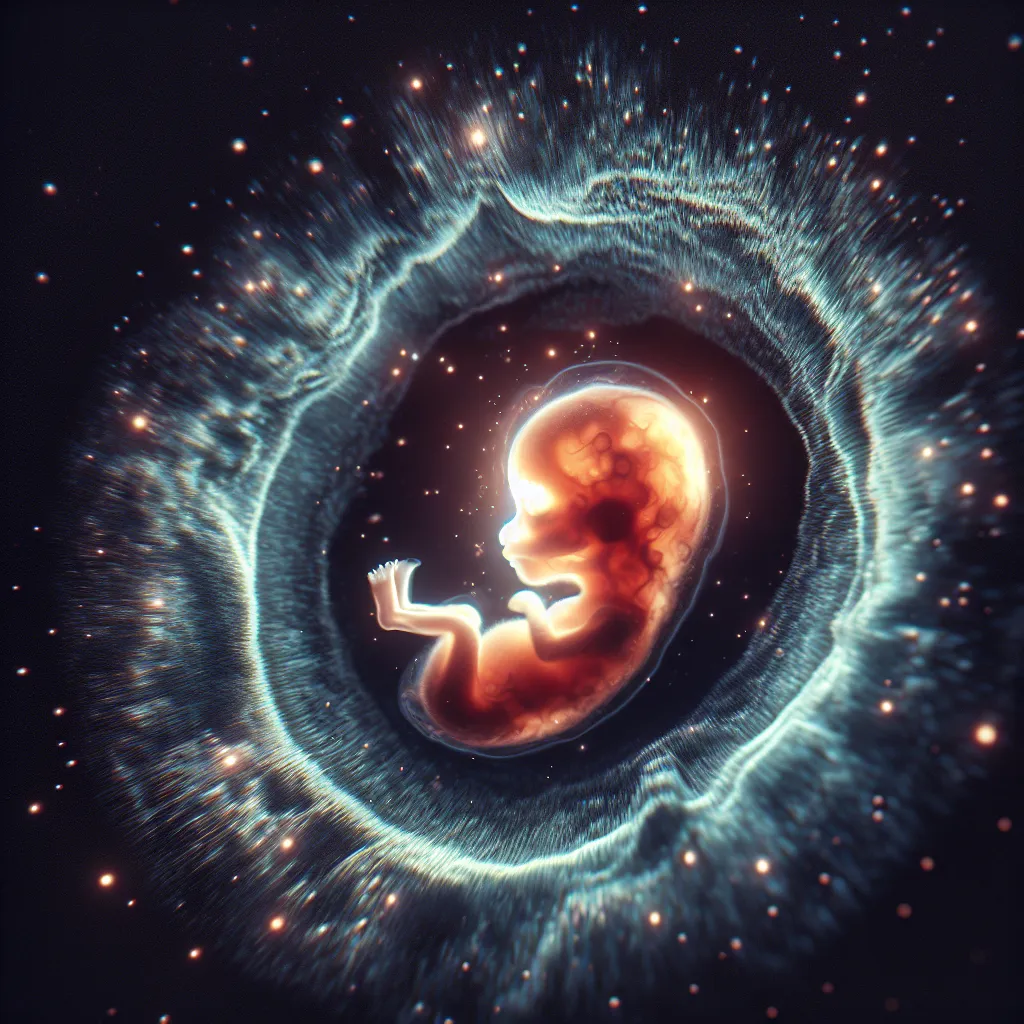The First Trimester: What to Expect
During the first trimester of pregnancy, a woman’s body goes through significant changes as it adjusts to the developing fetus. This stage spans from week 1 to week 12 and is a critical period of development for the baby. One of the earliest signs of pregnancy is a missed period, which prompts many women to take a pregnancy test. As the body starts producing hormones such as estrogen and progesterone, women may experience symptoms like morning sickness, fatigue, and tender breasts.
The fetus undergoes rapid development during the first trimester, with major organs such as the heart, brain, and spine beginning to form. By the end of the third month, the baby’s vital organs are in place, and the embryo is now considered a fetus. This is also when the placenta starts to develop, allowing the transfer of nutrients and oxygen from the mother to the baby.
Expectant mothers should focus on maintaining a healthy lifestyle by eating a balanced diet, taking prenatal vitamins, and avoiding harmful substances such as alcohol and tobacco. It’s also essential to seek prenatal care to monitor the progress of the pregnancy and address any concerns that may arise.
Overall, the first trimester is a period of adjustment and preparation for the journey ahead. Understanding the physical and emotional changes that occur during this stage can help women navigate the early stages of pregnancy with confidence and knowledge.
Changes in the Mother’s Body During Pregnancy
During pregnancy, a woman’s body undergoes remarkable changes to support the growth and development of the baby. Understanding the stages of pregnancy is essential for expectant mothers to manage these changes effectively. The first trimester, lasting from week 1 to week 12, is characterized by significant hormonal shifts, leading to symptoms such as morning sickness, fatigue, and breast tenderness. The mother’s body starts to produce more blood to supply nutrients and oxygen to the developing fetus, which may lead to changes in blood pressure and an increased heart rate.
Moving into the second trimester, which spans from week 13 to week 27, the mother experiences a shift in her body’s center of gravity as the baby grows. This can lead to backaches and postural changes. Additionally, the expanding uterus puts pressure on the mother’s bladder, causing an increase in the frequency of urination. Hormonal changes can also affect the skin, causing pigmentation changes and the appearance of stretch marks. Meanwhile, the increase in blood flow can result in swollen ankles and varicose veins.
Finally, the third trimester, from week 28 to the birth of the baby, brings its own set of changes. The mother’s body continues to expand to accommodate the growing baby, leading to shortness of breath and difficulty finding a comfortable sleeping position. Additionally, the pressure on the digestive system can cause indigestion and heartburn. Some women may also experience swelling in the hands and face due to water retention.
Understanding these changes can help expectant mothers prepare for the physical demands of pregnancy and seek appropriate support and care. Proper nutrition, regular exercise, and prenatal check-ups play crucial roles in managing these bodily transformations, ensuring the well-being of both the mother and the developing baby.
Overall, pregnancy is a transformative journey for the mother’s body, and being aware of these changes is a vital aspect of ensuring a healthy and comfortable pregnancy experience.
The Importance of Prenatal Care
Understanding the stages of pregnancy is crucial for ensuring the health and well-being of both the mother and the developing fetus. One of the most important aspects of this understanding is the recognition of the importance of prenatal care. Prenatal care plays a vital role in monitoring the health of the mother and the baby throughout the various stages of pregnancy.
Regular prenatal check-ups allow healthcare providers to identify and address any potential concerns early on. This can help prevent complications and ensure that any issues are promptly managed. Prenatal care also involves guidance on nutrition, exercise, and lifestyle factors that can impact the health of the mother and the baby.
Furthermore, prenatal care provides an opportunity for expectant mothers to receive important education on topics such as childbirth, breastfeeding, and newborn care. This helps mothers feel more prepared and confident as they approach the delivery and postpartum period.
Research consistently demonstrates that early and consistent prenatal care leads to better pregnancy outcomes. It reduces the risk of preterm birth, low birth weight, and infant mortality. Additionally, it promotes the early detection and management of conditions such as gestational diabetes and preeclampsia, which can significantly impact the health of both the mother and the baby.
In conclusion, understanding the stages of pregnancy involves recognizing the critical role of prenatal care. By prioritizing regular check-ups and following healthcare provider recommendations, expectant mothers can optimize their health and the well-being of their developing baby.
Fetal Development: The Second Trimester
During the second trimester of pregnancy, which spans from week 13 to week 28, fetal development progresses significantly. This stage is often referred to as the “honeymoon period” of pregnancy, as the initial symptoms such as nausea and fatigue tend to decrease, and many women feel a surge in energy.
Fetal development in the second trimester is marked by rapid growth and maturation. At around week 14, the fetus has developed all of its major organ systems, and by week 20, it is possible to determine the baby’s gender through ultrasound. The fetus also begins to develop more defined facial features, and fine hair called lanugo starts to cover its body.
By week 24, the fetus has a chance of survival if born prematurely, although it would still require intensive medical care. The senses also begin to develop during this stage, with the baby starting to hear sounds from the outside world and even exhibiting startled responses to loud noises.
As the second trimester progresses, the fetus grows in size and strength, and the mother will be able to feel more pronounced movements and kicks. This is a magical time for many expectant parents, as they can feel a more tangible connection with their growing baby.
In summary, the second trimester of pregnancy is a critical period for fetal development, marked by the maturation of organ systems, the beginnings of sensory perception, and the noticeable growth of the baby. It is a time of awe and wonder as the baby becomes more and more developed, and the anticipation for its arrival grows stronger with each passing week.
Managing Pregnancy Symptoms and Discomforts
During the stages of pregnancy, many women experience various symptoms and discomforts that can be managed effectively with the right approach. Nausea and vomiting, commonly known as morning sickness, are frequent early pregnancy symptoms. To ease these discomforts, it’s recommended to eat small, frequent meals, avoid strong odors, and stay hydrated. Fatigue is also a common complaint, especially during the first and third trimesters. It’s important for expectant mothers to prioritize rest and sleep, listen to their body’s signals, and ask for help when needed.
Another significant aspect of managing pregnancy symptoms is dealing with back pain and discomfort. As the pregnancy progresses, the body undergoes physical changes, leading to increased strain on the back. To alleviate this discomfort, maintaining good posture, wearing proper footwear, and practicing gentle exercises designed for pregnant women can be beneficial. Additionally, heartburn and indigestion are common in pregnancy due to hormonal changes. Eating small meals, avoiding spicy or greasy foods, and sitting upright after eating can help reduce these symptoms.
Furthermore, managing emotional well-being is crucial during pregnancy. Hormonal fluctuations and the anticipation of motherhood can lead to mood swings and increased stress. Engaging in relaxation techniques such as prenatal yoga, meditation, and deep breathing exercises can help alleviate stress and promote emotional balance. Seeking support from loved ones and healthcare professionals is also vital in managing the emotional aspects of pregnancy.
In conclusion, understanding and effectively managing pregnancy symptoms and discomforts is essential for ensuring a more comfortable pregnancy experience. By implementing practical strategies and seeking support when needed, women can navigate through the stages of pregnancy with greater ease and peace of mind.
Labor and Delivery: A Guide for Expectant Mothers
Expectant mothers often eagerly anticipate the moment when they will finally meet their little one. Labor and delivery are the culmination of the pregnancy journey and understanding the stages of this process is crucial for expectant mothers. The initial stage of labor, known as the early stage, is characterized by regular contractions that cause the cervix to gradually dilate. This phase can last for hours, during which time expectant mothers are advised to remain as comfortable as possible and use relaxation techniques to manage the pain. The active stage follows, marked by intensified contractions and more rapid dilation of the cervix. At this stage, expectant mothers are usually admitted to the hospital or birthing center. Finally, the transition stage heralds the imminent arrival of the baby, as the cervix reaches full dilation. It’s a time of intense emotions and physical sensations. Understanding these stages, along with various delivery options and pain management techniques, can help expectant mothers navigate the journey of labor and delivery with confidence and empowerment.





